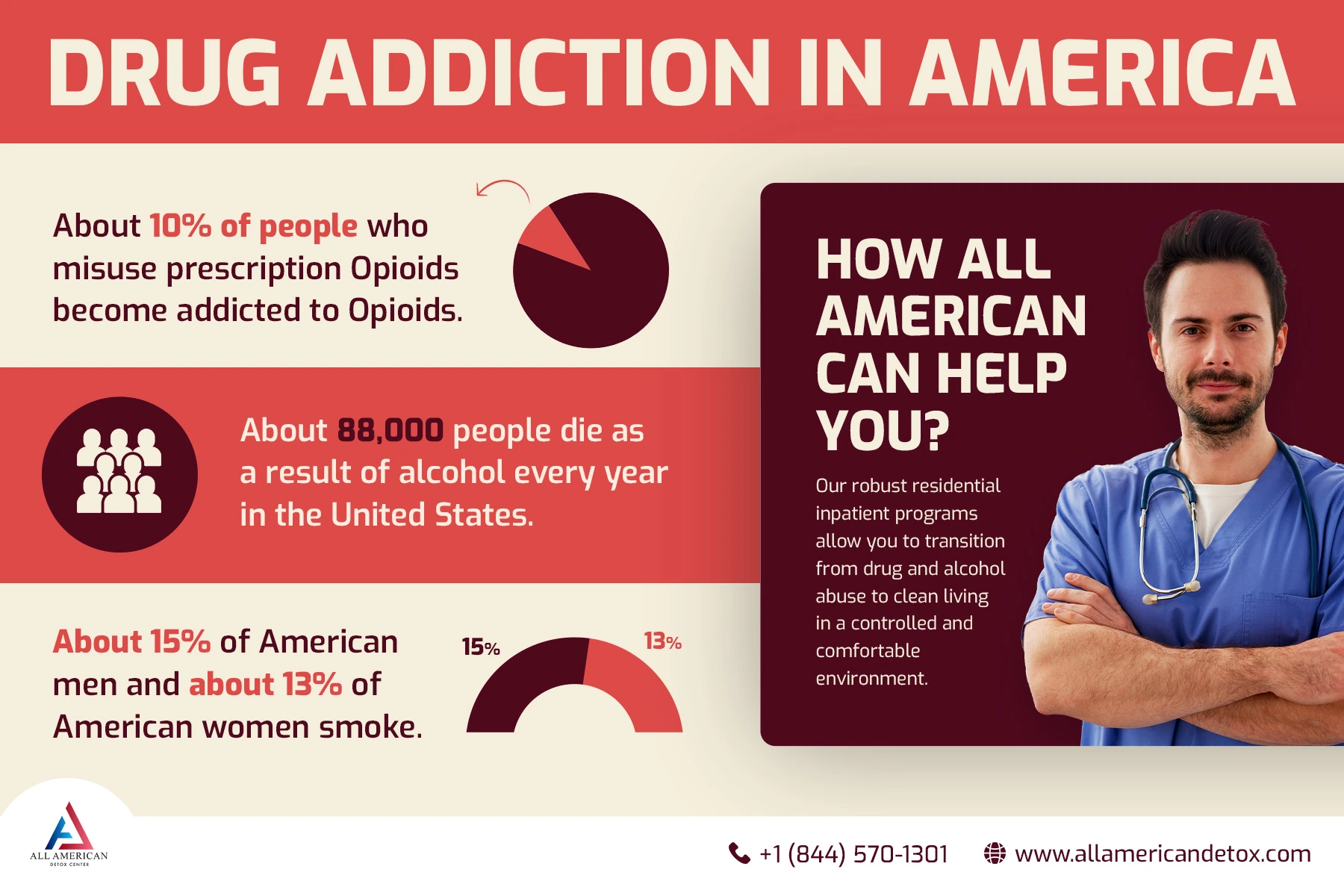It’s stigmatizing. It’s a struggle. It’s helplessness. It can seem perversely fun. It’s the illusion of control. It’s destructive. It’s deceptive. It’s painful. It’s euphoric. It’s devastating. It’s life-shattering. And it’s certainly treatable. Learn here about drug addiction!
How Do You Define Addiction?
So, how do you define addiction? While addiction comes in many forms, the American Psychiatric Association does a great job of defining it concisely: “Addiction is a complex condition, a brain disease that is manifested by compulsive substance use disorder despite harmful consequences”.
The effects of substance abuse and addictive behavior eventually manifest in a dancing plethora of adverse ways, a few of those, according to Healthline, being:
- A lack of self-control
- Increased reliance on the substance
- Emotional numbness
What starts maybe innocently as a way to feel better or from curiosity, snowballs into one of those, you-just-can’t-help-yourself vibes, and it continues ad nauseum until you reach a breaking point. The proverbial rock bottom.
But does it happen to everyone?
What is Drug Addiction?
Addiction is a disorder of the brain and behavior. When you’re hooked to drugs, you can’t stop yourself from using them, no matter how dangerous they are. The sooner you seek treatment for drug addiction, the more likely you are to prevent some of the disease’s more serious consequences.
Drug addiction can begin with the occasional use of a recreational drug in social situations, and for some people, the drug usage progresses to more frequent use. Others, particularly those addicted to opioids, develop a drug addiction after being exposed to prescription drugs or acquiring medications from a friend or relative who has been given the medication. The risk of addiction and the rate at which you get hooked differs depending on the drug. Some medicines, such as opioid pain relievers, have a higher risk of addiction and induce it more quickly than others.
Drug addiction is not limited to heroin, cocaine, or other illicit narcotics. Alcohol, nicotine, sleep and anti-anxiety drugs, and other legal substances can all lead to addiction.
Why Addiction Effects Some People and Not Others
Drug addiction is defined as a complex condition and brain disease. Addiction is not a fate that befalls all, which honestly is great, so let’s take a moment to acknowledge that fact. That said, it is something that can touch everyone in one way or another. It’s not as if we’re separated out and sorted into static columns of “addict” and “addiction-free” at birth. Like the fluidity with which our lives move, so too does addiction.
There are a handful of big-time considerations for why the scourge of substance abuse affects some of us and not others, the National Institute of Health does a great job boiling it down:
- Biology – The risk of addiction is 40 to 60% related to genetics, which is wild. Gender, ethnicity, and existing mental disorders all can be factors that increase risk.
- Environment – This is perhaps the most visible factor. Things related to your neighborhood, home life, family, and socioeconomic standing. All these things play an enormous role when combined with the peer pressure many kids and even adults face.
- How the substance is taken – Simply put, smoking or injecting increases the potential for addiction drugs.
It’s a bit nature and a bit nurture and ultimately recognizing that each person’s situation is unique is important in forging a road to recovery they can confidently, and successfully, travel down.

How to Treat Addiction
It’s not an easy task but luckily there are many approaches to suit the varied needs of those suffering from addiction. Often the first thing that happens is an acknowledgment of their addiction and the struggle, or impossibility, to cope with it personally and internally. That’s how it all starts for us at All American Detox, we help anyone who reaches out and asks for help.
After that momentous leap, a huge component to getting on the straight and narrow is drug detoxification, i.e. the act of removing toxic substances from your body through physiological and medicinal practices. Our program is a way to safely get you off the drugs or alcohol and back in the driver’s seat of your life.
Defining Addiction at All American Detox
Depending on the individual situation, inpatient treatment may be the best way to go. We create a welcoming environment, with loads of amenities and surrounded by a team of medical and psychiatric professionals, to keep you comfortable while you get yourself clean.
As important as it is to get clean and on the right track, doing it in a bubble at a center like ours isn’t quite the same as real life. We know that. Because of that, we offer robust outpatient and aftercare to help adjust to sober living on the outside. It’s essentially the same treatment we offer at a facility but at a scaled-back level. Think of it as us holding your hand through the transition.
Yet another element of the treatment ecosystem is sober living, more or less a stripped-down version of inpatient treatment. Folks can come and go as they please, get back into and resume normal life while having a safe space to come back to as they really cement those newly formed healthy habits.
Addiction doesn’t have to be a life sentence and at the All American Detox Center, we are here to help people find a path to lasting recovery once and for all. Call us today to learn more about our drug alcohol detoxification program!


